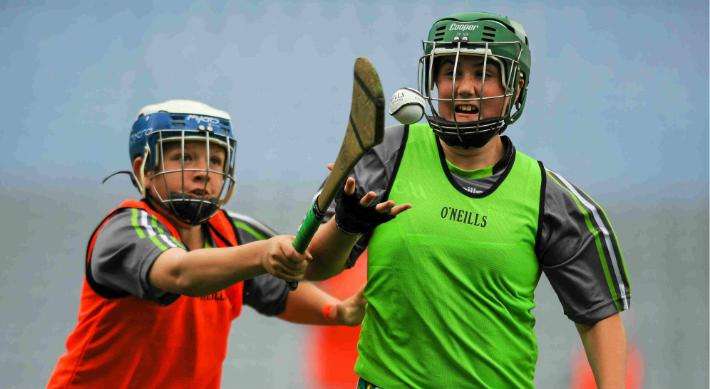Psychologists tackle youth sport drop-out rates

Psychologists from the University of Stirling have developed an innovative intervention to arrest the youth drop-out rate in Ireland's biggest sporting organisation.
And their findings of their research could have an impact on addressing similar trends in other sports.
The Gaelic Athletics Association (GAA) - which covers Gaelic games such as Hurling, Football, Handball and Rounders – is highly popular, with more than 500,000 members and 20,000 teams worldwide.
It had, however, identified a staggering 58 percent drop-out rate of 10,466 players aged 10-22 in 2012 and so sport academics at Scotland's University for Sporting Excellence were commissioned on a three-year project to tackle the issue.
Working with grass-roots coaches and the GAA Games Development department, they piloted the GAA Super Game Centre, tailored to provide the right blend of playing opportunities, coaching and support.
Ten Centres across 10 counties were set-up, with 430 children aged 12-16 attending across the 24-week programme, enjoying small-sided games in a supportive social environment.
Sport Pyschology PhD student Daragh Sheridan, a former Aston Villa FC footballer and consultant to the Irish Institute of Sport, led the research behind the pilot project, alongside School of Sport Professor David Lavallee and Dr Pete Coffee.
Daragh said: "Worldwide trends reveal drop-out rate from sport at levels of 50 percent and higher from childhood to adolescence so the issue is not unique to Gaelic games. Some children might be choosing one sport over another at this time, but there are other factors which have an impact such as dissatisfaction and negative experiences.
"We identified six key values which if expressed in a games environment would create the type of participation experience which would positively impact a young player's desire to play and to stay with the GAA."
Players, parents and coaches were interviewed following the pilot to identify the efficacy of the Centres.
Professor Lavallee said: "Our research found the players' intentions to drop out of Gaelic Games participation were significantly reduced. Players developed a greater sense of belonging to the GAA and we saw higher levels of motivation, friendship and confidence."
The GAA now plans to roll-out the Super Game Centres across Ireland and integrate the findings into its national player and coach development pathway.
Aogán Ó Fearghail, GAA President, said: "Maximising participation in our games is a key strategic priority for the association. The recommendations from this research will enable the GAA to become an international leader in proactively responding to youth drop-out. Our aim is to provide a regular programme of meaningful and inclusive games opportunities that set the conditions for life long participation in our games. This is critical in safeguarding the significant role that Gaelic Games play across Irish community life."















